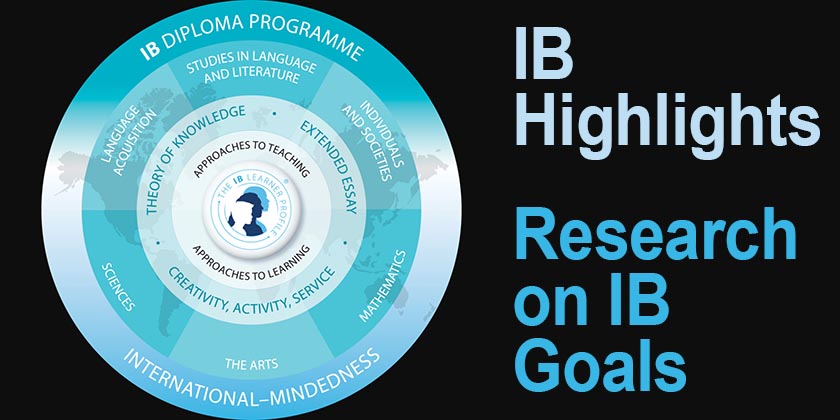IB Question of the Week

IB Question of the Week: Does the IB perform research to evaluate their goals?
Yes. In one case, the IB did research on the effect of the Diploma Programme (DP) on critical thinking development: An international multi-site evaluation. The summary developed by IB Research was based on a report by: Therese N Hopfenbeck, Kit Double, Yasmine Hachem El Masri and Joshua McGrane, Oxford University Centre for Educational Assessment, University of Oxford, October 2020.
Background: Critical thinking plays an important role both in the classroom and everyday life, including being a key factor for determining individual and collective success in the face of complex global challenges (Butler 2012; Clarke, Double and MacCann 2017; Griffin and Care 2015; Kirschner 2020). In broad terms, critical thinking refers to a person’s ability to analyse, synthesize and evaluate information (Halpern 2001). Given the importance of critical thinking for attaining valued outcomes, the International Baccalaureate (IB) Diploma Programme (DP) has made developing critical thinking a central focus of its programme and approach. This study examined the effects of the DP on the critical thinking skills of students in Australia, England and Norway. Specifically, it investigated whether student participation in the DP contributed to higher levels of critical thinking, as measured by an established critical thinking assessment instrument. Researchers also examined DP curricular elements that may support critical thinking, and explored the perspectives of DP students and teachers.
Summary: The results suggest that the IB embraces a mixed approach to critical thinking development, which is largely in line with evidence-based best practice. This approach makes teaching critical thinking an explicit goal, ensuring that critical thinking instruction is not assumed to necessarily follow from other knowledge gains but is specifically taught within the classroom. Quantitative findings indicate that IB students had significantly higher levels of critical thinking than their non-IB peers—an advantage that held even after relevant covariates were controlled for using regression approaches and propensity score matching. The critical thinking advantage seen in IB students was more pronounced in students that were in the later stage of the DP compared to those at the beginning of the DP. Overall, these results provide evidence that DP participation benefits critical thinking, as measured by a pre-validated critical thinking assessment. However, there are a range of unaccounted for pre-existing differences between IB and non-IB students that may contribute to the observed differences in critical thinking. In interviews, students and teachers shared a belief that TOK, the EE and DP subjects foster the development of critical thinking. Additionally, teachers and students generally believed that the DP better prepares students for further study compared to national or state programmes.

